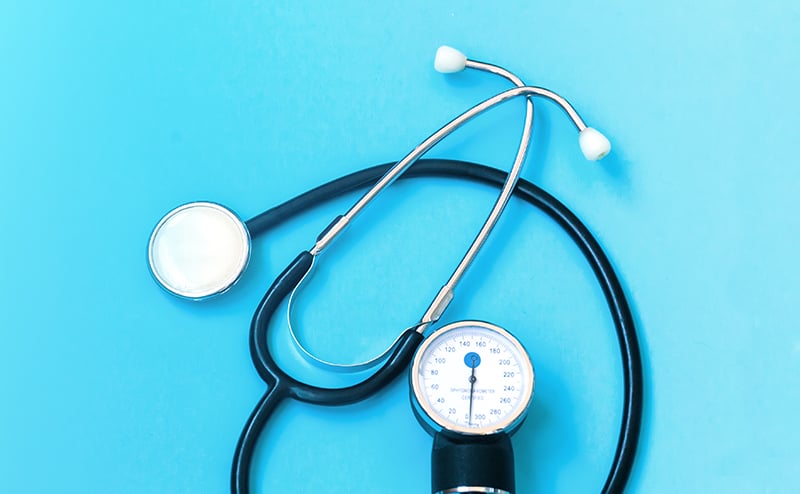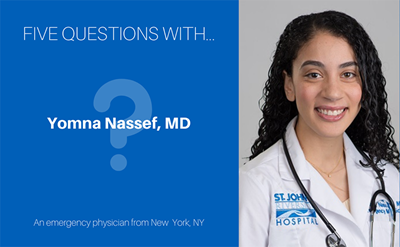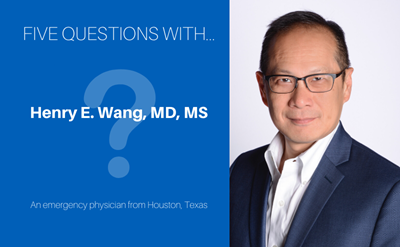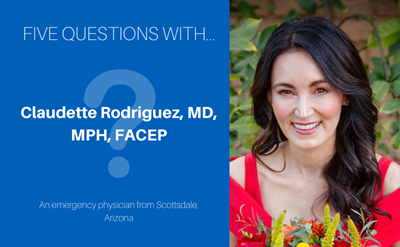As an emergency patient laying on your gurney waiting to be seen, you might have a few questions. I’m not talking about typical questions, like why does my stomach hurt so much!? Or, am I going to be ok? In an emergency, you might wonder about the strangers who you trust to provide your care.
In particular, you might wonder just who would choose to work in such a place, where people need to dress so that accidentally getting a little sputum or urine or vomit or blood on their clothes is not a serious problem. Where the mess on the floor that needs to be mopped up is somebody’s blood. Where the people who solicit their services are often in the middle of a heart attack. You may wonder, with all that’s going on, how can these doctors have any feelings left for me? Or, into whose emotionally calloused hands am I entrusting my sprained ankle, my laceration, my life?
The first answer is that we are people, just like you. We have children, we have homes, we are of every religious belief, political persuasion, race, ethnicity or gender identity.
Second, we are here because the emergency department is where we want to be. This is where we have chosen to be. This is the job we want to do. We are here because, by and large, on more days than not, we like doing what we do.
Why do we feel that way? Is it the cheers of the crowd? People do write thank you notes from time to time, but none of us are trailed by paparazzi. Are we adrenaline junkies? Not really. There are many ways to be scared that are more fun.
Part of the reason is the people with whom we work. Emergency physicians are leaders. Someone has to be. But leaders are nothing without a team – a team of nurses, technicians, physician assistants, patient representatives, chaplains, ward clerks and more – each of whom feel the same way about the work we do. It is the team that makes the work possible.
But, the real reason? It is you. Every day, every night, every weekend, you come in. You are hurting and want relief. You are frightened and want to be reassured. You are in danger and want to be saved. You are sick and want to be cured.
You ask us to help you – and, amazingly enough, a lot of the time, we can. That means that now and then, most days, we will get to see you smiling because your pain is better; relieved because you know what is happening to you and what you can do about it; alive because we did the needed things at the necessary time to prevent you from dying.
That is a feeling like no other. And that is why we work in the Emergency Department.
In short, what I am trying to say is that those of us who choose to spend our lives in the Emergency Department do so because we love you.
Many of us might be embarrassed to read this. In our society “love” is only a feeling, and a mushy one at that; and, in the emergency room, feelings often must be postponed. But that’s not the love I’m talking about. I’m talking about love as an action, as a commitment, as something you do no matter how you happen to be feeling, because that is what you promised you would do.
One of my favorite descriptions of emergency medicine was written well over a hundred years ago by Rudyard Kipling. At the time, India was occupied by the British army. The poem is the story of an Indian native named Gunga Din, whose job – of carrying water to the soldiers - makes him, in my opinion, the original EMT.
The speaker in the poem is a wounded British soldier whose life is saved when Gunga Din drags him back behind the battle line to safety and gives him a drink of water, just as Gunga Din himself is killed by a bullet. At the end, the poem reads:
“So I’ll meet ‘im later on
In the place where ‘e is gone—
Where it’s always double drill and no canteen;
‘E’ll be squattin’ on the coals
Givin’ drink to pore damned souls,
An’ I’ll get a swig in Hell from Gunga Din!”
If that isn’t the ED job description, what is?
Paul Seward is a retired emergency physician. His memoir, Patient Care: Death and Life in the Emergency Room, is available now.
 American College of Emergency Physicians
American College of Emergency Physicians







